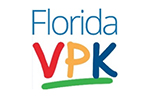Board
Meetings
The ELC Board of Directors meets on a quarterly basis. All Board of Directors meetings is open to the public. Each Board meeting includes the following:
- Approval of Agenda
- Approval of Minutes from the Previous Meeting
- Opportunity for Public Comment
- Vote on Pending Action Items
- Board Chair Report
- Program Updates and Discussion
- Discussion of Other Business as Necessary
Minutes are kept for all Board of Directors meetings and are available to the public, upon request.
Upcoming Meetings
[tribe_events view=”list” category=”Board of Directors”]
Sunshine Law
The ELC is a not-for-profit agency that adheres to the requirements of the “Sunshine” law as described in Section 119.01, Florida Statutes.


